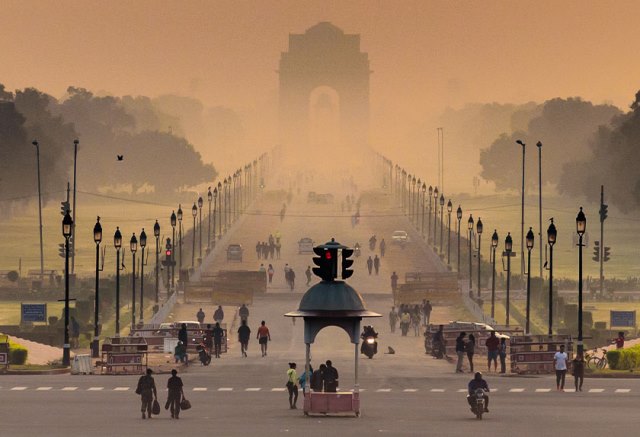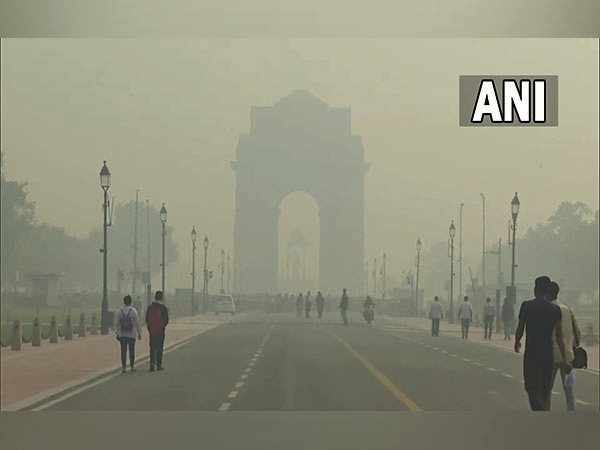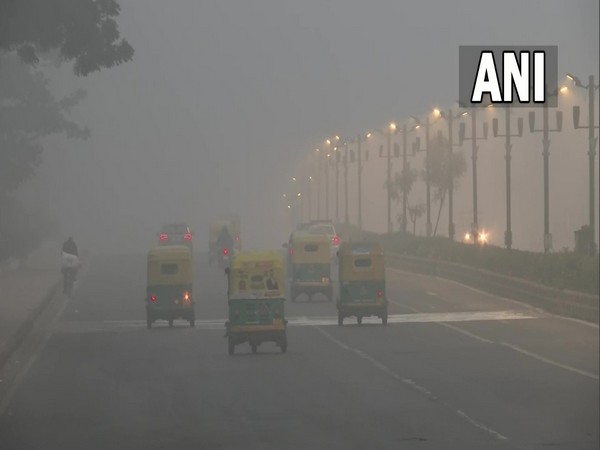Delhi’s overall Air Quality Index (AQI) suddenly and unexpectedly spiked and clocked 400 on Friday, according to Central Pollution Control Board (CPCB) data.
In view of the significant deterioration in the air quality of Delhi-NCR in the last 24 hours, the Sub-Committee for invoking actions under the Graded Response Action Plan (GRAP) of the Commission for Air Quality Management in NCR and Adjoining Areas (CAQM) met on Friday to review the situation.
Ministry of Environment, Forest and Climate Change said in a statement that during the meeting, the Sub-Committee Comprehensively reviewed the air quality scenario in the region as well as the forecasts for meteorological conditions and the air quality index of Delhi.
“While assessing the overall air quality parameters, the Sub-Committee noted that the air quality has suddenly and unexpectedly deteriorated owing to dense foggy conditions without much sunlight and very low temperatures, coupled with calm winds and stable atmospheric conditions over the last few hours. Further, there is an increasing trend in the overall AQI of Delhi in the coming days as per the Air Quality forecast of the India Meteorological Department (IMD)/Indian Institute of Tropical Meteorology. Therefore, it is considered necessary to re-impose Stage-III of GRAP with immediate effect in the entire NCR in an effort to steer clear of further deterioration of air quality in the region,” the Ministry.
Based on earlier decisions of the Sub-Committee on GRAP, actions up to Stage-I and Stage-II of the GRAP are already in force vide orders dated October 5, 2022, and October 19, 2022, respectively. Stage III and Stage IV of the GRAP have also been imposed and thereafter revoked from time to time based on the prevalent air quality scenario in Delhi.
Ministry of Environment, Forest and Climate Change further said in a statement that as per the dynamic model and weather/meteorological forecast, the average air quality of Delhi is likely to deteriorate further on Saturday and the overall AQI is expected to stay in the ‘Severe’ category.
Therefore, in an effort to prevent further deterioration of air quality in the region, the Sub-Committee decided that all actions as envisaged under Stage-III of GRAP – ‘Severe’ Air Quality (DELHI AQI ranging between 401-450), be implemented in right earnest by all the agencies concerned, with immediate effect in the entire NCR. This is in addition to the preventive/ restrictive actions already in force under Stage-I and Stage II of GRAP.
Accordingly, a nine-point action plan as per Stage III of GRAP is applicable with immediate effect from today in the entire NCR in addition to preventive/ restrictive actions under Stage-I and Stage II of GRAP which are already in place.
This nine-point action plan includes steps to be implemented and ensured by different agencies and Pollution Control Boards of NCR and the Delhi Pollution Control Committee. These steps intensified the frequency of mechanized and vacuum-based sweeping of roads.
Daily water sprinkling along with the use of dust suppressants, before peak traffic hours, on roads and right of ways including hotspots and heavy traffic corridors, and proper disposal of the collected dust in designated sites and landfills.
Intensification of public transport services. Introduce differential rates to encourage off-peak travel.
The Committee directed to enforce of a strict ban on construction and demolition activities in the entire NCR, except for the categories of projects including Railway services/ Railway stations, Metro Rail services including stations; airports and inter-state bus terminals; national security/defense-related activities/ projects of national importance; hospitals/ healthcare facilities; linear public projects such as highways, roads, flyovers, over bridges, power transmission, pipelines, etc; sanitation projects like sewage treatment plants and water supply projects, etc; and ancillary activities specific to and supplementing above categories of projects.
Other than the projects exempted under dust generating/air pollution causing construction and demolition activities to be strictly banned during this period shall include earthwork for excavation and filling including boring and drilling works; all structural construction works including fabrication and welding operations; demolition works; loading and unloading of construction materials anywhere within or outside the project sites; transfer of raw materials either manually or through conveyor belts, including fly ash; movement of vehicles on unpaved roads; operation of batching plant; laying of sewer line, waterline, drainage work and electric cabling by open trench system; cutting and fixing of tiles, stones, and other flooring materials; grinding activities; piling work; waterproofing work; road construction/repair works including paving of sidewalks/pathways and central verges, etc.
All construction projects in NCR, non-polluting/non-dust generating activities such as plumbing works, interior decoration, electrical works, and carpentry-related works shall be permitted to be continued.
The Committee directed to ensure a strict ban on any industrial operation in NCR with fuels other than those listed in the approved fuel list for NCR.
Milk and dairy units and those involved in manufacturing life-saving medical equipment/devices, drugs, and medicines shall however be exempted from the restrictions.
The Committee directed the closure of brick kilns and hot mix plants which are not operating on fuels, as in the standard list of approved fuels for NCR.
It also directed to closing down operations of stone crushers. Further, mining and associated activities have been banned in the NCR.
State governments in NCR/GNCTD may impose restrictions on BS III petrol and BS IV diesel LMVs (4-wheelers), the Committee said.
Moreover, the Commission appealed to the citizens of NCR to cooperate in implementing GRAP and follow the steps mentioned in the Citizen Charter under GRAP. It advised citizens to share a ride to work or use public transport, walking or cycling.
The Committee advised people to work from home if their positions allow. It further appealed to people not to use coal and wood for heating purposes.
Further, all implementing agencies have been advised that actions under Stage ‘I’ and Stage ‘II’ of the GRAP are further intensified and special drives are conducted for the implementation of actions under Stage ‘III’, particularly restrictions related to construction and demolition activities, stone crushers and mining and associated activities. Regulatory actions need to be taken on industrial operations, brick kilns, and hot mix plants using unapproved fuels.
The Commission said it is closely watching the situation and will review the air quality scenario accordingly. (ANI)
Read more: http://13.232.95.176/




